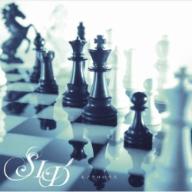有人話when係 1邊進行,1邊過去/現在
又有人話when係2邊都現在
都有人話when係2邊都進行
有人話while 係 1邊進行,1邊過去/現在
又有人話while 係2邊都現在
都有人話while 係2邊都進行
邊個先真?
when同while 問題
2010-05-27 7:09 am
回答 (4)
2010-05-27 6:29 pm
✔ 最佳答案
[過去] 或 [現在],甚至 [進行],不能單憑 [when] 或 [while] 來次定,而是根據 [動詞] 的 [時式]。e.g.
(1) My parents were having dinner when I got home. (一邊是 [過去進行], 一邊是 [過去])。
(2) While he is busy talking, I am busy eating. (兩邊都是 [現在進行])。
(3) When he was talking, I ate all the food. (一邊是 [過去進行], 一邊是 [過去])。
不過,如果不用 [進行式動詞],單憑 [when] 和 [while], [when] 是指某一個時點 (certain point in time),而 [while] 指一個時段 (a period of time),所以有 [進行] 的感覺。
例如:
(1) "he danced while I sang' 和 "he dances while I sing" 都有着两邊當時都同時進行的意思。
(2) "he danced when I sang" 和 "he dances when I sing" 感覺上他可能只在我唱歌的時段中跳過舞。
由於 [while] 有進行的意思,所以比較適用於放在進行式前面 (即是 [進行]中的那一邊)。
e.g.
While I was taking a bath, the phone rang.
The phone rings while I am taking a bath.
相對來說,由於 [when] 有[時點] (point in time) 的意思,所以比較適用於放在簡單 [現在] 或 [過去] 式前面 (即是 [不是進行]中的那一邊)。
e.g.
When the phone rang, I was taking a bath.
I am taking a bath when the phone rings.
如果兩邊都同時進行,[while] 比較好些。
e.g.
(1) She was singing while taking a bath.
(2) The phone was ringing nonstop while she was taking a bath.
參考: myself
2010-05-27 5:04 pm
2010-05-27 2:29 pm
when係現在 also when係進行
while 係進行
When you realize that you must study for the exam, it will be too late. (現在(future))
When I was born, I was 10kg. (進行(past))
I was doing my homework while talking on the phone with my girlfriend.(進行(Now)
while 係進行
When you realize that you must study for the exam, it will be too late. (現在(future))
When I was born, I was 10kg. (進行(past))
I was doing my homework while talking on the phone with my girlfriend.(進行(Now)
2010-05-27 8:33 am
WHEN = 當 asking: 可時
例子: When you asked me about...
When are you comeing back?
WHILE = 一會兒,一段時間
例子: While you were defrosting the meat, I was preparing the seasonings.
例子: When you asked me about...
When are you comeing back?
WHILE = 一會兒,一段時間
例子: While you were defrosting the meat, I was preparing the seasonings.
收錄日期: 2021-04-13 17:16:43
原文連結 [永久失效]:
https://hk.answers.yahoo.com/question/index?qid=20100526000051KK01734

